25 May 2015
Can You Get Sober And Stay Sober Alone?
You’re determined to get over your problem with addiction. You’ve had enough of the horrible way alcohol and/or drugs are making you feel and the damage you are constantly doing to the people you love. You have lost jobs, relationships and maybe your reputation because of your drinking and drugging. You might even have some health concerns caused by addiction.
People are encouraging you to go to a treatment center. You want to stop your self-destructive tendencies but you don’t want to go anywhere. You are sure that you can quit any time you want to and you’re just about ready to prove it. You don’t believe you need anybody to show you how. You just need to stop using alcohol and drugs.
Powerful Hold Of Addiction
 It’s the great delusion of almost every addict or alcoholic that he or she has the freedom to choose to quit. The truth is that once you are addicted, it’s highly unlikely that you will be able to discontinue using your drug of choice without help. Drugs and alcohol are physically and mentally addicting. Mind-altering substances create a compulsion to continue their use even when they are destroying you.
It’s the great delusion of almost every addict or alcoholic that he or she has the freedom to choose to quit. The truth is that once you are addicted, it’s highly unlikely that you will be able to discontinue using your drug of choice without help. Drugs and alcohol are physically and mentally addicting. Mind-altering substances create a compulsion to continue their use even when they are destroying you.
The reason you can’t quit has little to do with lack of willpower. Drugs cause chemical changes in the brain that lead to craving. You are compelled to keep repeating the experience of getting high even when all the important things and people in your life are slipping away. It’s true that you may be able to quit for short periods of time, but you can’t seem to stay stopped. You are compelled to keep returning to a life of active addiction.
Why You Should Ask For Help
Getting sober requires much more than simply making up your mind that you want to quit. Withdrawing from certain chemicals, including alcohol, can be dangerous and possibly even life-threatening, and should usually be done under medical supervision. Getting through withdrawal is only the beginning. Once you have safely detoxed from chemicals, you have to learn a whole new approach to life and you will need the help of others to do that.
Up to now you’ve been in the habit of running from problems and uncomfortable emotions. With the help of other people, you can learn to cope with the stressors of life without turning to chemicals.
Having the help of people who share their experiences of living a sober life with you will make your journey much easier than it will be if you try to figure everything out on your own. When you go to meetings and reach out to others in recovery, they can tell you the mistakes they have made along the way as well as the things they have learned that have worked.
Remaining Vigilant To Recovery
The best way to get sober is to have the help of others to get through detox and early sobriety. As time passes, it’s equally important to remain connected to others on an ongoing basis and to remain aware that there is always the possibility of relapse.
Even though you’ve broken the cycle of daily habitual use of your drug of choice, you may find that you suddenly experience the compulsion to pick up a drink or a drug after you’ve been sober a while, and this may happen when you least expect it.
Addiction can be compared with other relapsing diseases such as diabetes or heart disease. There is no graduation date and no point at which you are cured. You have to keep doing whatever it takes to stay sober, and that includes going to meetings and staying connected to other people.
Recovery from drugs and alcohol is definitely possible, and in most cases, successfully recovering on a long-term basis is done by surrounding yourself with other people who truly understand.
Your support network can include a sponsor, friends both inside and outside of recovery circles and possibly counselors or addiction professionals. Those who follow the 12 steps of recovery believe that there is strength in numbers and are aware that each of the 12 steps includes the words “we” or “us.” Together we can do what none of us can do alone.
Discover 5 Tips To Understand Addiction And Quit Unhealthy Habits!
Marijuana is the most popular illicit/illegal drug in the U.S. among both younger and older people. In some cases, people who consume marijuana may also be active participants in other forms of drug use.
In a study published in September 2014 in the Journal of Addictive Diseases, a team of American researchers explored the connection between marijuana use and the intake of other drugs among young people transitioning from adolescence into early adulthood. These researchers concluded that daily consumers of marijuana in this age range are statistically more likely to also use additional drugs.
Stats On Marijuana, Older Teens And Young Adults
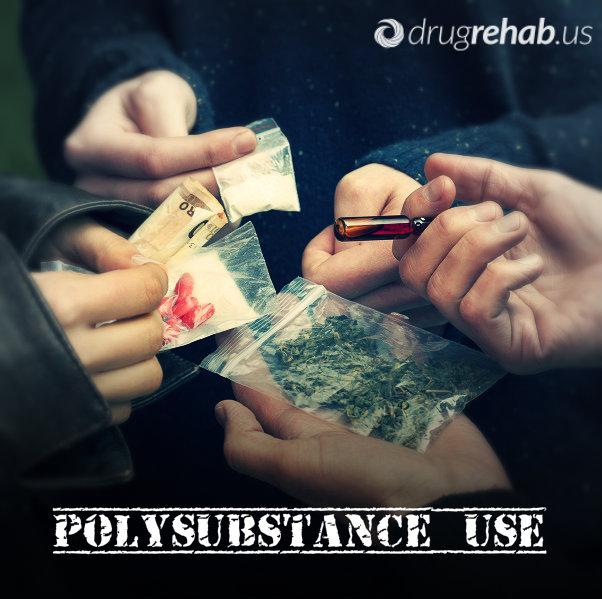 Approximately 19 million Americans over the age of 11 consume at least some amount of marijuana in a typical month, according to 2012 figures compiled through a federal project called the National Survey on Drug Use and Health.
Approximately 19 million Americans over the age of 11 consume at least some amount of marijuana in a typical month, according to 2012 figures compiled through a federal project called the National Survey on Drug Use and Health.
All told, users of this cannabis product account for close to 80 percent of the nation’s entire population of illicit/illegal drug users. Roughly 63 percent of the nation’s illicit/illegal drug consumers only use marijuana, while the remainder of marijuana users also consume at least one other drug.
Teenagers over the age of 15 and young adults under the age of 26 have the highest monthly rates for marijuana intake. Approximately 14 percent of 16- and 17-year-olds consume some quantity of the drug in the average month. The monthly rate of marijuana use rises to nearly 19 percent in older teens and younger adults between the ages of 18 and 25. Roughly 7.6 million American teens and adults qualify as daily marijuana users by consuming the drug at least 20 days a month. In addition, roughly 5.4 million American teens and adults consume marijuana at least 300 days a year.
Polysubstance Use
Marijuana users who also consume other drugs participate in a form of substance use commonly known as polydrug or polysubstance use. As a rule, polydrug users have heightened chances of experiencing the damaging effects associated with the substances they consume.
Damaging Effects Of Polysubstance Use
These effects include:
- overdoses
- serious changes in cardiovascular (heart and blood vessel) function
- serious changes in lung function
- significant body temperature alterations
Serious changes in mental function can also occur that may qualify as symptoms of mental illnesses such as:
- major depression
- anxiety disorders
- psychosis-related disorders
Examples of additional substances sometimes consumed by marijuana users include the stimulant cocaine, methamphetamine or other stimulants, opioid drugs or medications, inhalants, sedative-hypnotic medications (i.e., tranquilizers and sleep medications) and hallucinogens.
Drugs Linked To Marijuana Use
In the study published in the Journal of Addictive Diseases, researchers from Brown University, Brown-affiliated Butler Hospital and the Veterans Administration used an examination of 1,075 people transitioning from adolescence to adulthood to determine the forms of polysubstance use most likely to occur among marijuana users in their late teens or very early 20s.
During interviews with the researchers, each of these study participants submitted information on his or level of involvement in marijuana use, as well as his or her level of involvement in the use of cocaine, stimulants other than cocaine, opioid drugs or medications, sedative-hypnotic medications, hallucinogens and/or inhalants. T
he researchers also gathered background information on such factors as each participant’s demographic profile (age, racial/ethnic ancestry, gender, etc.) and level of involvement in binge drinking.
Some of the young people enrolled in the study qualified as daily marijuana users, while others did not. After completing their analysis, the researchers concluded that daily consumers of the drug are substantially more likely than other people in the same age range to consume:
- cocaine
- non-cocaine stimulants
- inhalants
- opioid drugs and medications
- nicotine/tobacco
This finding holds true even when considerations such as demographic profile and level of binge drinking involvement are taken into account.
Based on their findings, the study’s authors concluded that daily marijuana users are unusually likely to participate in polysubstance use during the transition between adolescence and early adulthood. They also concluded that these daily consumers of the drug may have increased chances of experiencing notably negative health outcomes.
It’s important to note that, even in the absence of polysubstance use, daily marijuana use has clearly negative health impacts. For example, figures compiled by the National Institute on Drug Abuse indicate that roughly one-quarter to one-half of all daily consumers of the drug will eventually merit a diagnosis of cannabis addiction (part of a larger condition called cannabis use disorder).
Do You Or Someone You Love Need Help Overcoming Marijuana Addiction?
Learn More About Marijuana Rehab Treatment – Turn A Life Around Today!
11 Dec 2014
Coping With A Chronic Relapser
Helping a loved one overcome addiction is challenging. First you have to convince her that she has a problem, which may seem like an insurmountable obstacle. Once she is ready to admit to her addiction and get help, you have to support her as she goes through rehab. Finally, your loved one is prepared to re-enter the world as a sober person in recovery. And then she relapses, again and again and again. After lending so much support, how do you help the chronic relapser in your life?
Understanding Relapse
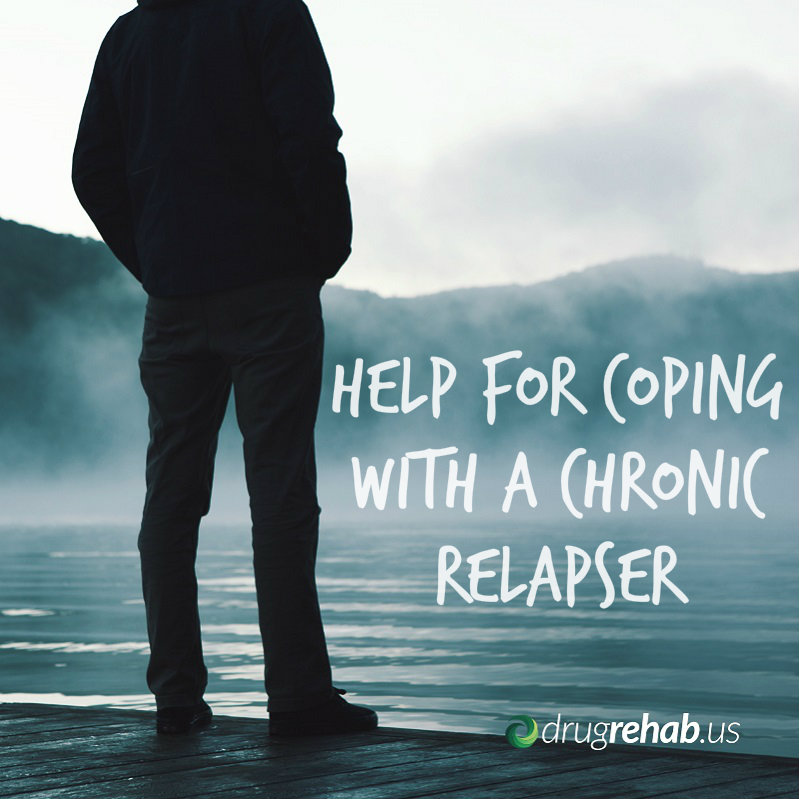 As someone who does not have an addiction or substance abuse problem, it can be difficult to appreciate what your loved one is going through. It may help you to feel better, and to be better able to help her, if you educate yourself about this disease. The old-fashioned idea about addiction is that the addict always has a choice and that if she fails at being sober, she is weak-willed and inferior.
As someone who does not have an addiction or substance abuse problem, it can be difficult to appreciate what your loved one is going through. It may help you to feel better, and to be better able to help her, if you educate yourself about this disease. The old-fashioned idea about addiction is that the addict always has a choice and that if she fails at being sober, she is weak-willed and inferior.
Research over the last couple of decades has changed that long-standing view of addiction. We now know that it is a chronic illness and has much in common with other chronic medical conditions like diabetes or arthritis. The most important characteristic of chronic illnesses that you must understand is relapse. Relapse is common and almost inevitable in all chronic diseases. These illnesses require lifelong treatment, and even then relapse may still occur.
Continuing Support Toward Your Loved One Who Is Relapsing
Knowing more about addiction and its chronic nature may help you to be more compassionate toward your loved one who is relapsing. Even so, it can be frustrating to see her repeatedly go back to substance abuse. You have a choice as to whether you continue to support her or not. Most addiction experts would urge you to continue to be there for her. Many addicts require several tries at rehab and focused treatment before relapses stop or become less frequent.
If you have the means to keep supporting your loved one, do so. She needs you. Help her in any way possible. That may mean helping her to pay for treatment, helping her to find new treatment programs that are more successful for her, or giving her a supportive place to stay after rehab. Just remember to take care of yourself as well. Don’t give more than you can afford to, financially, emotionally or otherwise. And make sure you are not enabling by making excuses for your loved one or providing financial help for their habit.
Walking Away From A Chronic Relapser
Your other option when coping with a chronically relapsing loved one is to walk away and withdraw your support. It seems like a harsh option, but there are some valid reasons to make this choice. If you feel completely drained, worn out or used up from helping her, you may need hiatus. Take a few weeks to heal yourself and tell her that you will support her once again, but that you need a break.
Another reason you may need to walk away, and maybe do so for good, is if your loved one is taking advantage of you and causing you harm. Maybe she is stealing from you. She might be verbally or physically abusive, or perhaps puts you or your children at risk by bringing drugs and dangerous people to your home. How you choose to cope with a loved one who can’t seem to stay sober is personal. Consider your options and make the choice that is best for you and your family. There is only so much one person can give.
Women And Men Have Unique Needs When Coping With Relapse. Check Out These Beneficial Tips To Cope With Relapse As A Woman – You Are Not Alone!
In June of 2014, the Delaware News Journal partnered with Christiana Care to host a forum on the heroin crisis gripping the state, but several questions from audience members were left unanswered. Panelists at the event willing to work with the Delaware News Journal have offered to answer some of these questions in an ongoing feature, and Don Keister, co-founder of the anti-addiction group atTAck and whose son died of heroin addiction in 2012, has stepped forward for the task. The question he answered revolved around what you should do when an adult child who lives with you—and has children of his or her own—is struggling with addiction but won’t get help, and his response offers important advice to anybody suffering similar issues.
The Three Cs For Family Members Of Addicts
Keister offers a core piece of advice from Al-Anon: remember the three Cs.
You didn’t cause it,
you can’t control it
and you can’t cure it.
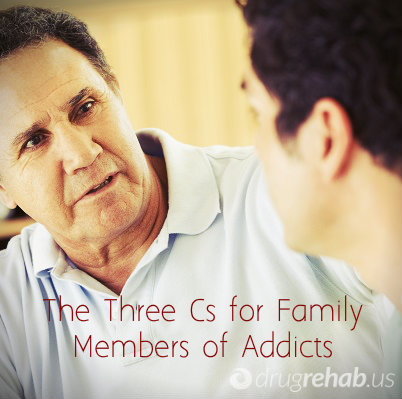 If someone you care about is suffering from addiction, there’s an inclination to try to take too much on your shoulders or even to feel guilt, but this is unhealthy.
If someone you care about is suffering from addiction, there’s an inclination to try to take too much on your shoulders or even to feel guilt, but this is unhealthy.
You’re in no way responsible for what is happening. It’s only natural to want to fix the problem for your child, but addiction isn’t like a scraped knee or a period of minor financial trouble: it’s not something you can rectify for them.
By trying, all you’ll do is make yourself more stressed and unhappy. It may seem puzzling given the situation, but you need to care for yourself as well as your family member.
That’s the real purpose of the three Cs: you need to truly understand that you aren’t to blame, and you can’t heap all the responsibility onto your own shoulders.
No Single Solution To Recovery
Sadly, there isn’t a single road you must follow to recovery. You need to think about what works for you and your family as individuals, but it is important that you’re there to offer support. You need to continue to love your child, and of course the same goes for your grandchildren.
Although you can’t force somebody to get help, you should do whatever you can to support and encourage your son or daughter to go into recovery. Even if your child won’t get help, you shouldn’t blame him or her for the issue either; addiction has many causes and it isn’t productive to become angry with or resentful of somebody struggling with it. Your child always needs to know you’re acting out of love and concern for his well-being.
Addiction As A Family Disease
Keeping all of that in mind, it’s important you recognize that addiction is a disease that affects entire families. The most obvious affected parties are your grandchildren: your son or daughter is unlikely to be capable of offering the level of parental care they need, and this is one area where your support is invaluable.
However, as the three Cs point out, you need to care for yourself too. The challenge is staying as healthy as you can while still being there to help the entire family unit—including the addict—get through this together. This is especially important if you’re all living together, but it makes it all the more difficult to avoid taking too much responsibility yourself.
Importance Of Getting Additional Recovery Support
That’s why getting additional recovery support is essential. Even if the addicted individual won’t get help, groups like Al-Anon exist to offer support to the loved ones of addicts, and can help you get through the problems you’re facing. Addiction isn’t easy for anybody in the family, and if you’re having difficulty, help is available.
Keister’s advice might not have been what you were hoping for, but it’s realistic, and attests to his personal experience with the problem. As much as you may want an easy fix, it doesn’t really exist. Things can and hopefully will get better, but until then, all you can do is be as supportive as possible and make sure you look after yourself, too.
If You Need Help With A Family Member’s Addiction – Call Us Now!
01 Dec 2014
Don’t Skimp On Your Time In Rehab
Getting treatment for drug addiction is the only way to heal from this terrible disease. If you or a loved one is struggling with drug abuse, treatment guided by caring professionals is essential.
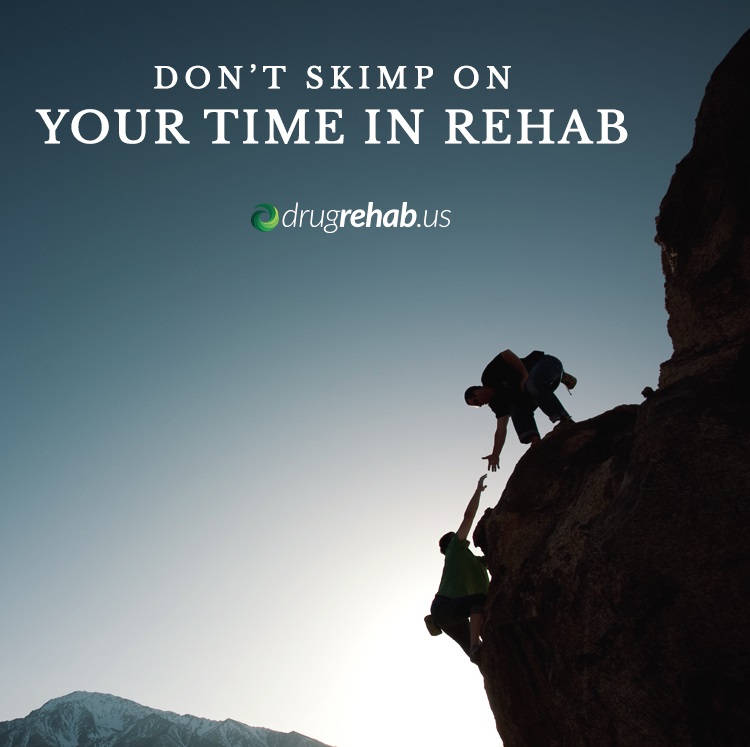 It is also important to understand that the disease of addiction is chronic. Like other chronic diseases, high blood pressure and diabetes for instance, addiction needs continuous treatment over a lifetime. You can never be cured of your addiction, but you can learn to manage it.
It is also important to understand that the disease of addiction is chronic. Like other chronic diseases, high blood pressure and diabetes for instance, addiction needs continuous treatment over a lifetime. You can never be cured of your addiction, but you can learn to manage it.
If you are thinking of going to rehab, know that the time you spend there will set you on your path to lifelong sobriety. It is important to spend enough time during this initial phase of treatment learning how to live a sober life.
Whatever you do, don’t skimp on your time spent in a good and caring rehab facility. Research shows that the best outcomes result from at least 90 days spent in residential or intensive outpatient care.
Why You Should Consider A Long Stint In Rehab
Here are several reasons you should consider a long stint in a good rehab in order to heal:
- Get past detox – Detox, that time when drugs leave your system and you get beyond withdrawal, can last longer than you think. Detox is important, but by the time it’s done, you may find you have limited time to work on actual treatment if your stay in rehab is only 30 days. Going through detox is hard, but it isn’t the part of rehab that helps you learn to be sober.
- Learn new habits –Your addiction is a habit. Your brain has learned a habit of regular drug use. In order to change those habits and learn new ones, you need time. You are going to rehab to learn how to have an entirely new lifestyle. You must take your time on this or your new healthy habits will not take root.
- Heal your brain – Your drug use has caused actual changes in your brain. It is possible to reverse those changes, but it takes time. Research has shown that in brain scans of patients receiving treatment, positive changes are still occurring up to three months after starting treatment.
- Work on relationships – The main goal of rehab is to heal and to overcome your addiction, but there are many other things to work on if you have the time. Your addiction has probably wrecked several of your relationships, for instance. If you spend enough time in rehab, you can work on repairing those.
- Treat mental disorders – Many people who struggle with addiction are also battling mental illness, whether they know it or not. Spending enough time in rehab will give your treatment professionals a chance to diagnose and treat any co-occurring disorders. When you recognize and treat mental illness you have a better chance at being successful at sobriety and living a more enjoyable life.
- Step down treatment – If you can afford the time to do so, your rehab should be followed by a step down in care. This means going from residential rehab to a sober living house or to intensive outpatient care. Doing so allows you to begin to practice your new habits and skills while still having the support and treatment of caring professionals. Going cold turkey from rehab to real life can be a shock and may lead to relapse.
Long-Term Rehab For Life-Long Sobriety
Rehab is an important step toward becoming sober and you should not skimp on it. If you are able to take the time away from work and family, spend as much time in rehab and step down treatments as necessary to help you be successful in your new, sober lifestyle.
Discover How To Choose The Right Drug Rehab For Yourself Or Your Loved One!
24 Nov 2014
The Transfer Addict
There is an often-overlooked type of addict who struggles just as much as any other. She is unlikely to get help. She is unlikely to recognize her own problem or to have her loved ones see it in her. She is the transfer addict and she flies under the radar choosing one addiction, reining it in and gaining control and then moving on to the next one. She fools herself and those around her, but she is a true addict and she needs help.
Substitute Or Transfer Addictions
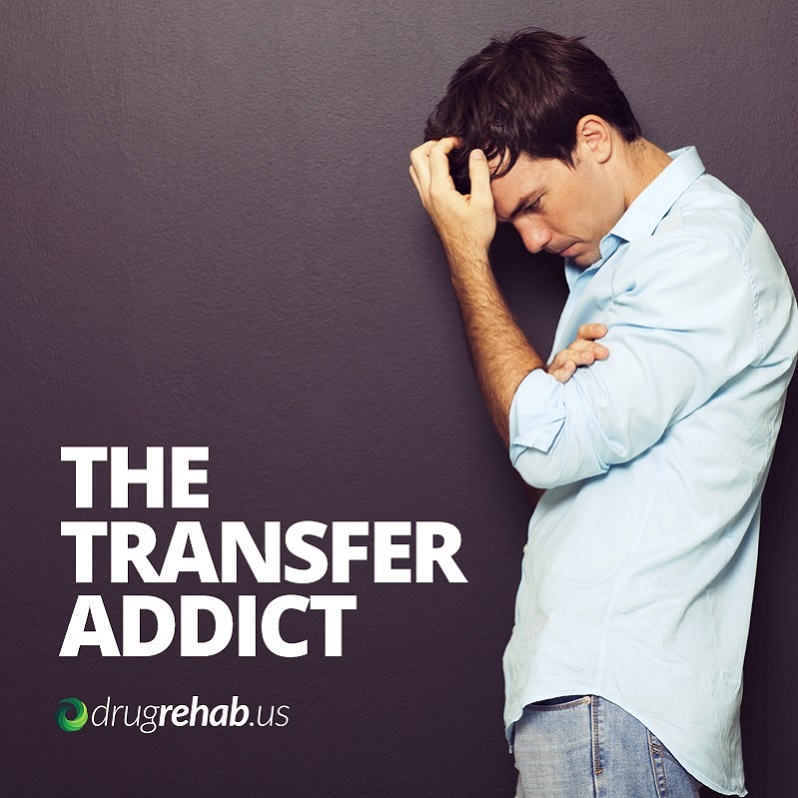 Changing from one addictive substance or behavior to another is not uncommon for an addict. But most who engage in this behavior are obvious, at least to those around them if not to themselves.
Changing from one addictive substance or behavior to another is not uncommon for an addict. But most who engage in this behavior are obvious, at least to those around them if not to themselves.
Addicts in recovery are susceptible to developing a substitute addiction because they are trying to replace their compulsive urges with other activities. An addict might, for instance, start running as a healthy distraction from the urges to relapse.
Setting and achieving race goals and getting physically fit is a great way to stay sober, but an addict might turn this into an unhealthy obsession and develop a new addiction to exercise or running.
Another form of the transfer or substitute addiction is when an addict still in the throes of the disease thinks changing to a less serious substance means regaining control.
For instance, a cocaine addict might switch to marijuana use. This is a common way in which an addict transfers his high, but it is simply the substitute of one substance for another and does not represent control over an addiction.
The Low-Flying Transfer Addict
While substitute addictions are not uncommon, there is another type of addict that flies low and under the radar. This addict has one unhealthy obsession, maybe drinking too much, but she is able to get it under control before it becomes a full and serious addiction.
She assures her friends and family that, yes, she probably drinks more than is good for her, but she has it under control. She does this, not by recognizing her obsessive behaviors, but by transferring them to something new.
She stops drinking and starts obsessing over food. She binge eats and starts gaining weight. Before long she is overweight, but decides to rein it in and get it under control. She assures everyone she is well by changing her diet and starting an exercise regime. She loses the weight, but now she is addicted to working out and meeting that next exercise goal.
This transfer addict may never let herself reach the level of full-blown addiction to one substance or behavior, but she displays all the compulsions of an addict. Her compulsive behaviors evolve and change, but she never copes with them. They never go away.
Breaking The Cycle Of Transfer Addiction
If the description of a transfer addict sounds familiar to you, it’s time to break the cycle. Whether it’s you or someone you know, transfer addictions need to stop in order to build a healthy lifestyle.
Addiction of any type has no cure, but it can be managed successfully. Whether this means getting professional help or using self-education and self-control to resist urges, you or your loved one can stop the destructive cycle of transfer addictions.
If you do try to go it alone, be aware that you might fail. If you can’t seem to control your behaviors and urges, don’t get discouraged. It just means that you need the assistance of an experienced professional.
Call Us Now For Help Overcoming Your Substance Or Behavioral Addiction – We Are Here For You!
20 Nov 2014
Should You Force Someone Into Rehab?
If you love someone who is struggling with addiction, all you want to do is help her. In an ideal world you would confront her and she would admit that she has a problem. She would thank you for your offer to help and agree to get treatment. Unfortunately, these scenarios rarely play out so well. Addicts are great at denial, lying and making excuses. If you have reached the end of your rope with a loved one, can you, and should you, force her to go to rehab?
 Can You Force Rehab?
Can You Force Rehab?
The first question to ask is whether it is even possible to force a loved one to get treatment. A person can be ordered by the court to receive treatment, but that requires the addict to be in trouble with the law.
There are several states in which family members can petition the court to have a loved one forced into treatment.
In fact, there are only a dozen or so states that do not allow for this. In some states, even a doctor can force a patient into addiction treatment for up to several days at a time.
Pros And Cons Of Forced Rehab
There are both benefits and negative consequences of involuntary rehab.
Benefits Of Involuntary Rehab
If you live in a state in which you can either petition the court or ask your doctor to mandate treatment for an addicted loved one, your next question should be whether this is the best option.
Perhaps the most important benefit of being able to force someone to get care is that it can save a life. Certain states have passed laws allowing for forced rehab because of tragic deaths. In Kentucky, for instance, Casey’s Law passed after a young man died from a heroin overdose. His mother pushed for the new law because she felt there were too few resources.
Involuntary rehab might also be positive for those addicts who end up benefiting from the treatment. Since Ohio passed its law two years ago allowing families to force relatives into rehab, only one case has been taken. The woman in question actually continued her treatment beyond the court-ordered period.
If other addicts are forced to seek care, they may realize that the treatment is helpful and that they want to continue and get better. Research has found that coerced treatment, at least through the court system, can be effective.
Negative Consequences Of Forced Rehab
For many families, coerced rehab may seem like the only option. You see your loved one unraveling in front of you and feel helpless. She refuses to get help, yet she is on a collision course with disaster.
Are there any downsides to forcing her into rehab if that is an option? Research tells us that intrinsically motivated addicts will be most successful in rehab. If you have to force your loved one to get help, her odds of success are automatically lowered.
The truth is that the best chance of a successful recovery comes from voluntary care with experts who use effective, evidence-based methods for treatment. If you have an addicted loved one, do everything you can to lovingly support her and convince her that she needs help.
Enlist the assistance of a professional interventionist if your efforts fail. Then, find a treatment facility that has an excellent reputation for caring for vulnerable addicts and that uses treatments based on research. These things together will be the best help your loved one can get.
Get The Know How On Finding The Right Treatment Facility For Your Loved One!
04 Nov 2014
The Danger Of Addiction Stigma
Addiction is one of the most stigmatized diseases there is. Stigma refers to a sense of disgrace or shame attached to an action, behavior or situation. Many people still view addiction as a choice or evidence of weak moral character, and therefore as something shameful. Even as research and scientific evidence point to the medical characteristics of addiction and the chemical brain changes that occur in addicts, we still stigmatize addiction. If you or someone you know has battled addiction you know how overwhelming that stigma can be. It can also be dangerous and it needs to be shattered.
Stigma Prevents Addicts From Getting Help
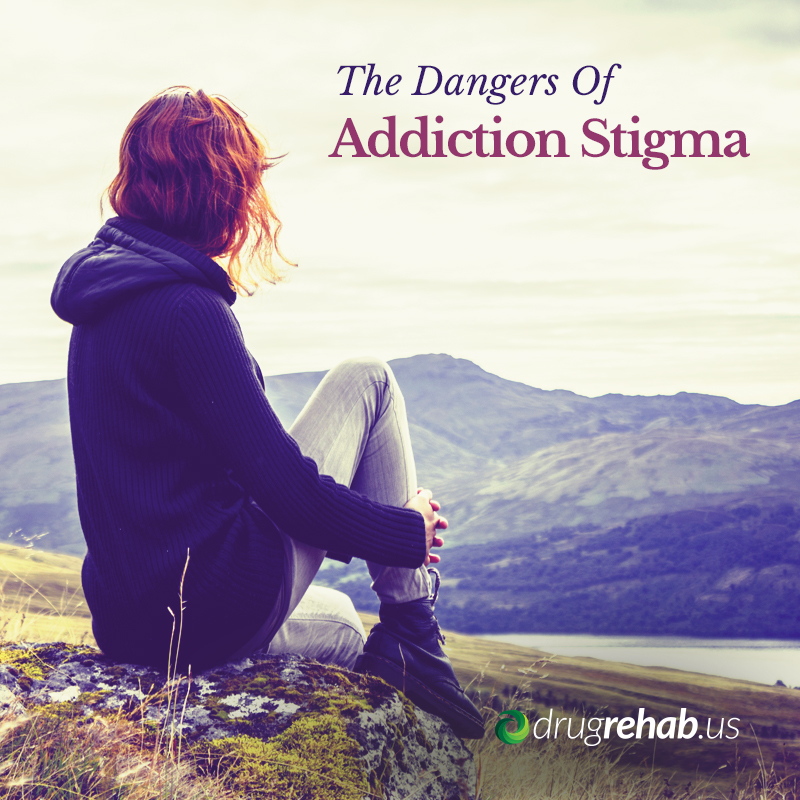 Perhaps one of the biggest dangers of stigma is that it keeps addicts from getting the professional help they so desperately need. When society at large views addiction as a moral failing rather than a medical illness, it makes sense that addicts would not want to admit to having a problem with substance abuse.
Perhaps one of the biggest dangers of stigma is that it keeps addicts from getting the professional help they so desperately need. When society at large views addiction as a moral failing rather than a medical illness, it makes sense that addicts would not want to admit to having a problem with substance abuse.
Why admit to something that would make everyone around you think less of you? It hurts to think of being treated that way, but it happens. And for this reason, many addicts deny their problem, hide their habit and refuse to get life-saving help, sometimes until it is too late.
Addiction Treatment Lags Behind Modern Medicine
Another danger of the stigma of addiction sits squarely in the world of medicine and the way in which the disease is treated. In spite of new research that shows the truth about addiction and which keeps growing in scope, treatment lags behind. We now know that addiction is a disease of the brain and should be treated as such. And yet, the majority of addicts in treatment are not getting care that is based on evidence and research. Just a small portion of addicts gets treatment that reflects what we know about addiction. Only when stigma shifts will treatment begin to change.
Addicts Are Going To Jail
The stigma of addiction is also entrenched in the justice system. Many addicts end up in jail for minor drug crimes, such as possession, when they really belong in treatment facilities. Most of the crimes committed by addicts are in the pursuit of drugs; in other words, their actions are a part of the disease. Sending an addict to jail for possession is almost akin to jailing someone with cavities for eating sugary foods or an obese person for having junk food. The latter two may sound ridiculous, but if we remove the stigma from addiction and view it as a disease, sending an addict to jail for having heroin would also sound outrageous.
Shattering Stigma
Stigma is dangerous. It prevents addicts from getting treatment, subjects addicts to sub-standard and ineffective treatment, and puts addicts in jail. If the incidence of addiction is to be reduced, we need to reduce stigma. If you or someone you know is an addict, it’s time to speak out and get help. We can work to end stigma by refusing to be quiet or complacent about addiction. Don’t deny the problem. Actively seek help and evidence-based treatment. Talk about your addiction and make sure people listen.
There is nothing shameful about having a disease and it’s time that everyone recognizes that fact. Stigma is killing addicts and that is the real shame when it comes to addiction. Change is coming, as evidenced by work of researchers and advocates for addicts, and it can’t come soon enough.
Time To Get Started And Take Action – Take That First Step To Addiction Recovery – Call Us Now!


